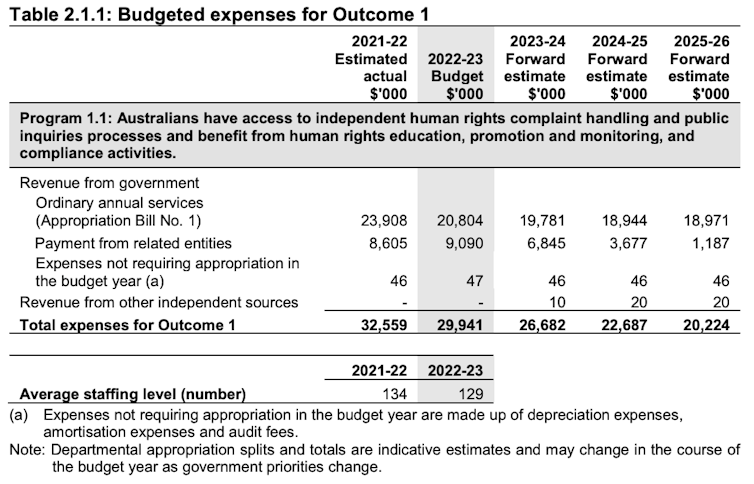Budget cuts to the Australian Human Rights Commission couldn't have come at a worse time
- Written by Amy Maguire, Associate Professor in Human Rights and International Law, University of Newcastle

The budget for Australia’s national human rights institution, the Australian Human Rights Commission, will fall significantly over the next four years.
These cuts are outlined in the budget statements from the attorney-general’s portfolio:





